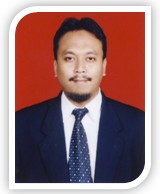By Endan Suwandana
Watching and observing mudik (homecoming travelers) from outside the country has given me such a feeling that might not be the same as that we are experiencing it by involving ourselves in it. While we are abroad, we can only observe and follow the annual homecoming travelers exodus occasion by reading news, watching TV or listening radio streaming from the internet.
Here, we made our room with a loud voice of Elsinta Radio streaming reporting some traffic events or interviewing some responsible officers in charge of police department. Sometimes we also heard the travelers being interviewed for getting their opinions about the situation, public service, road condition, etc. It has been much enough to bring our imagination back home and we are indeed missing that situation so much.
Away from family is actually something normal and usual for some people. But in such a time that we call it “Lebaran”, no one can be so surviving for being away from his/her relatives, because the atmosphere of home, of being with them where most of the family members present, is really an extraordinary event. This is a very miserable moment for being lonely as a human being due to the fact that human is a social creature that needs togethreness, possession and care from others.
Mudik is just beyond the ritual tradition. It’s not even taught by Islam. It’s just a development of human civilization and local culture that has been emerged and become an annual tradition for celebrating lebaran and doing farewell party for the blessing holy month of Ramadhan.
Mudik itself is not the essence of lebaran. But being with our parents, visiting them at least once a year, respecting them, making them happy, setting them at the position to be cared and loved by the children, are the most significant meaning of mudik. That’s what we understand why people have to take high risk by having long distance travel, traffic jam and high travel expenses, and most of them won’t leave it, because they are doing the most meaningful deed in Islam, which is visiting and respecting parents, family and friends.
Having concerned with mudik, we can observe that historically mudik was not our tradition at the ancient time. Indeed, it was our manner to come home, but not in a massive way and at a certain period of time like that of the present situation. Mudik has grown and become our social tradition that has been accidentally created by our society as a reflection of our holiday system running in our country.
As we know that we have only one long holiday season, that’s what we call it lebaran, while the rest of the days are working time. Therefore people utilize this only holiday season for visiting parents, relatives and friends in our home vilage, after one year collecting money. Lebaran is the only possible time for people to do such a thing in our country.
Moreover, we don’t have a kind of honeymoon holiday when someone gets married, and he/she has to get back for work one or two days after the party. As if we were just born for working. With this kind of holiday system how we can expect our domestic tourism to develope significantly and when we are able to have a chance to visit Toraja, Toba, Bali, and many other exotic places in Indonesia.
It is much different from other countries having four-season climate. In these countries, they manage their holiday system in such a way to welcome and celebrate each season with a long holiday. They have summer holiday, winter, autumn, spring, new year holiday and so on and so fort. Usually, the effective working time for thsese countries are only between eight or nine months, while the rests are holidays.
By having such a holiday system, some advantages can be achieved by the society, not only they get some opportunities of visiting parents and family regularly, but also their tourism industry becomes so powerful and valuable for the country because they have much time to explore some exciting places in their own country or to travel around the globe enjoying many remarkable places in the world.
Are we encouraged enough to make some innovations to our holiday system that may treat people at more humanitarian view and create possibility for themselves to love their own country by traveling and exploring it?
Endan Suwandana, M.Sc.
PhD Candidate
Graduate School for International Development Cooperation (IDEC) Hiroshima University
1-5-1 Kagamiya, Higashi Hiroshima, 739-8529, JAPAN
Ph: +81-82-424-6905 Fax: +81-82-424-6904
Langganan:
Posting Komentar (Atom)


Tidak ada komentar:
Posting Komentar